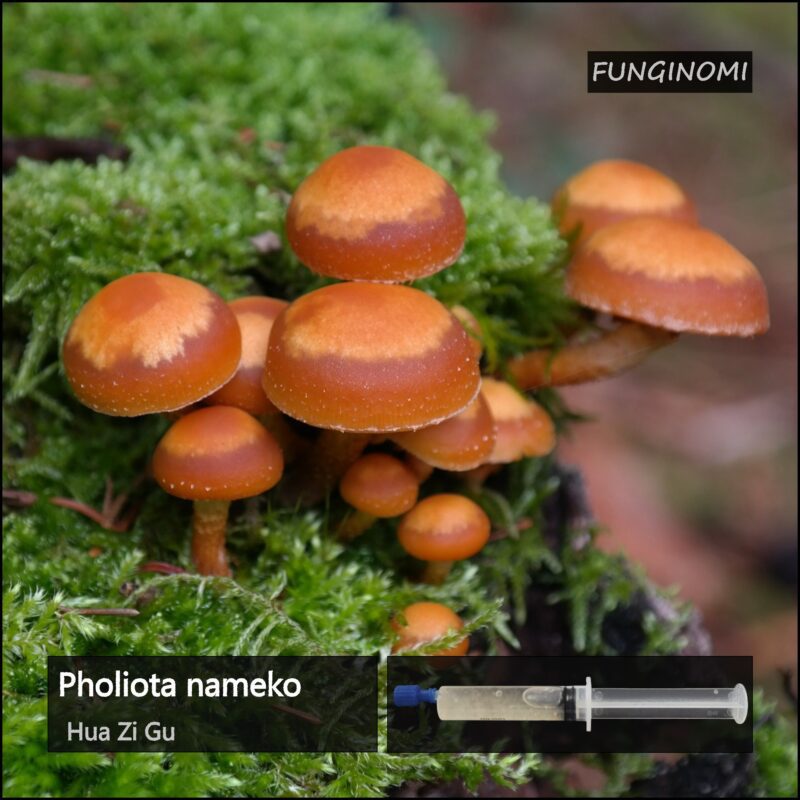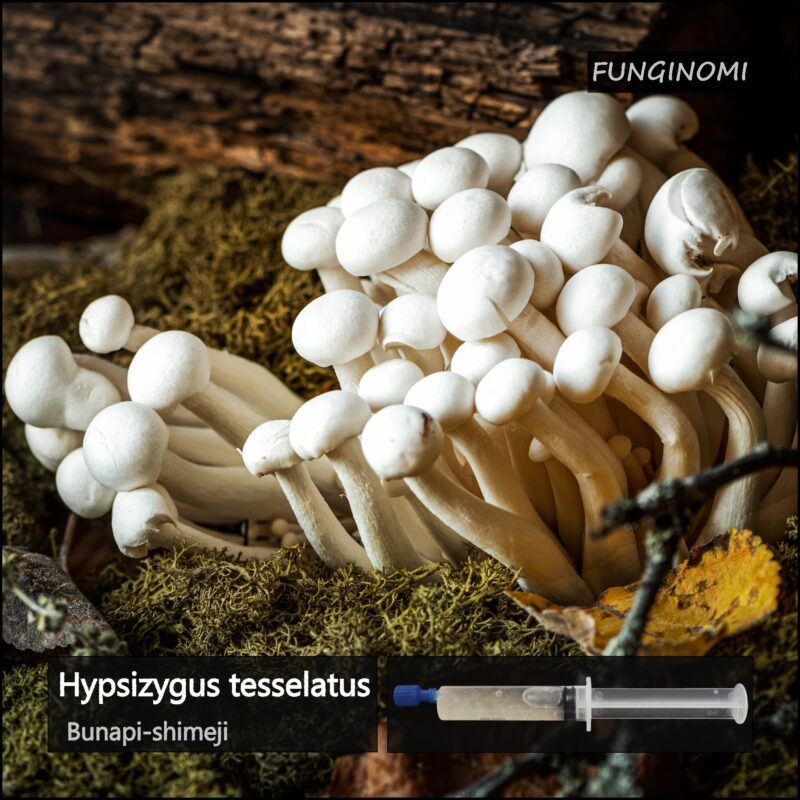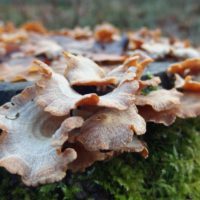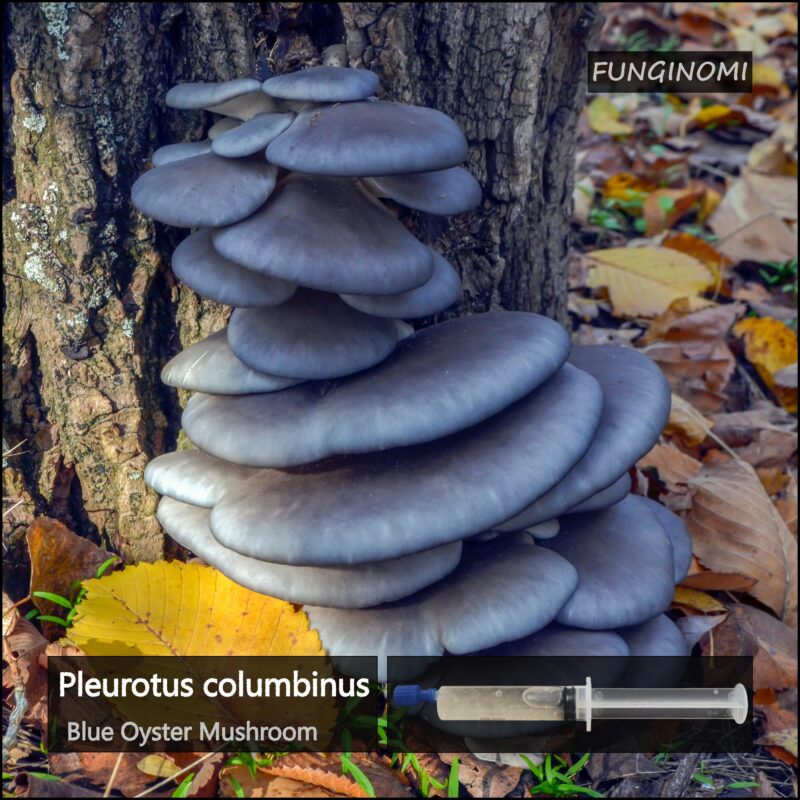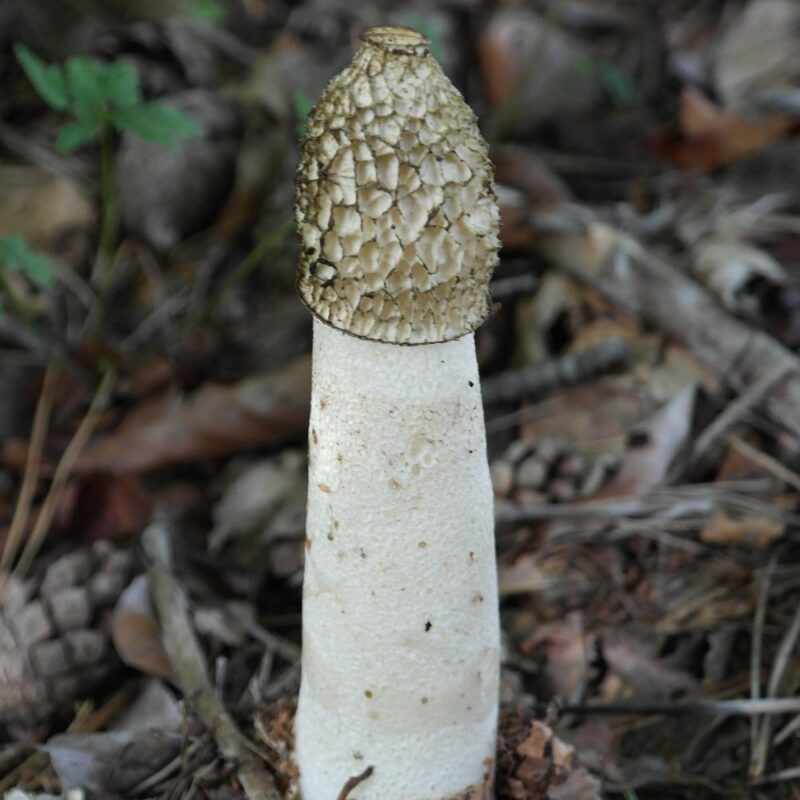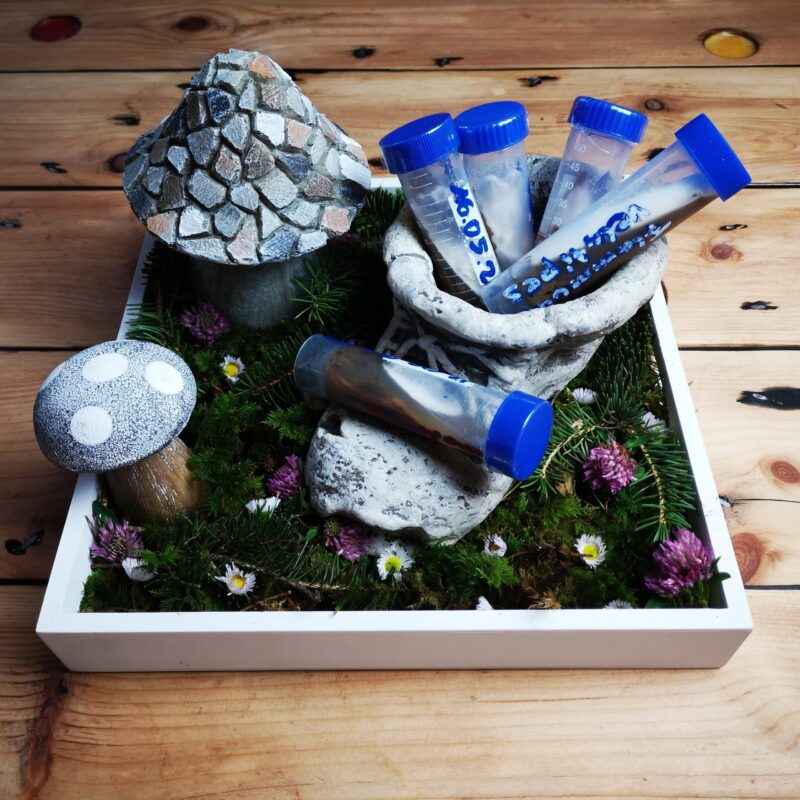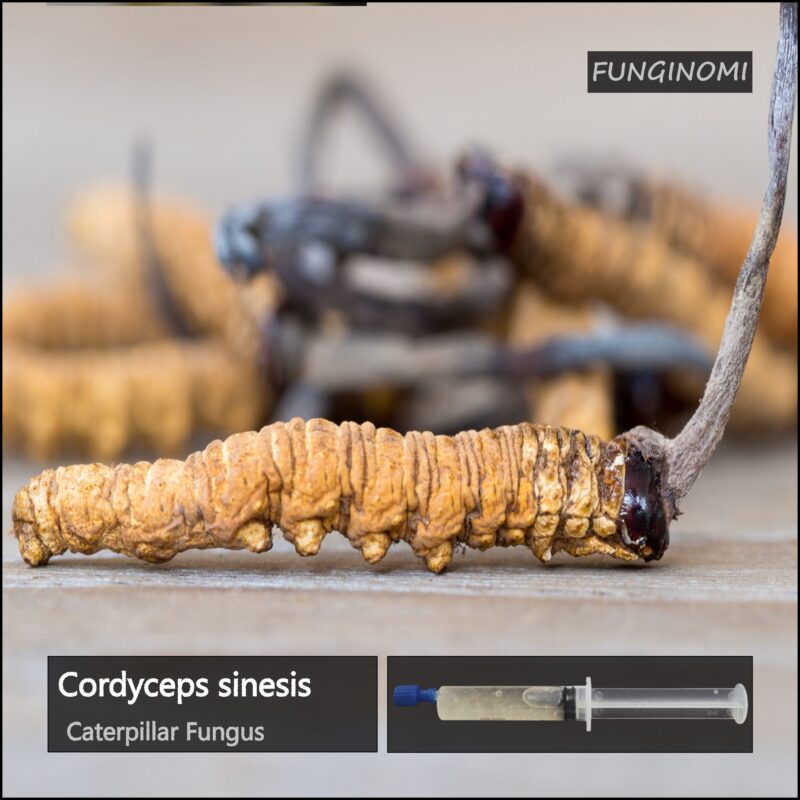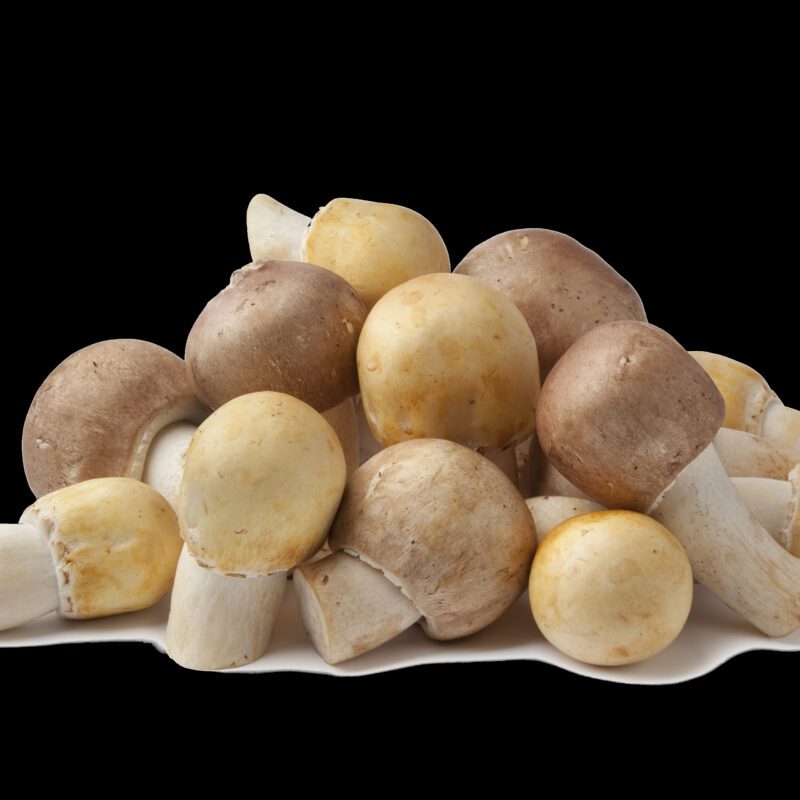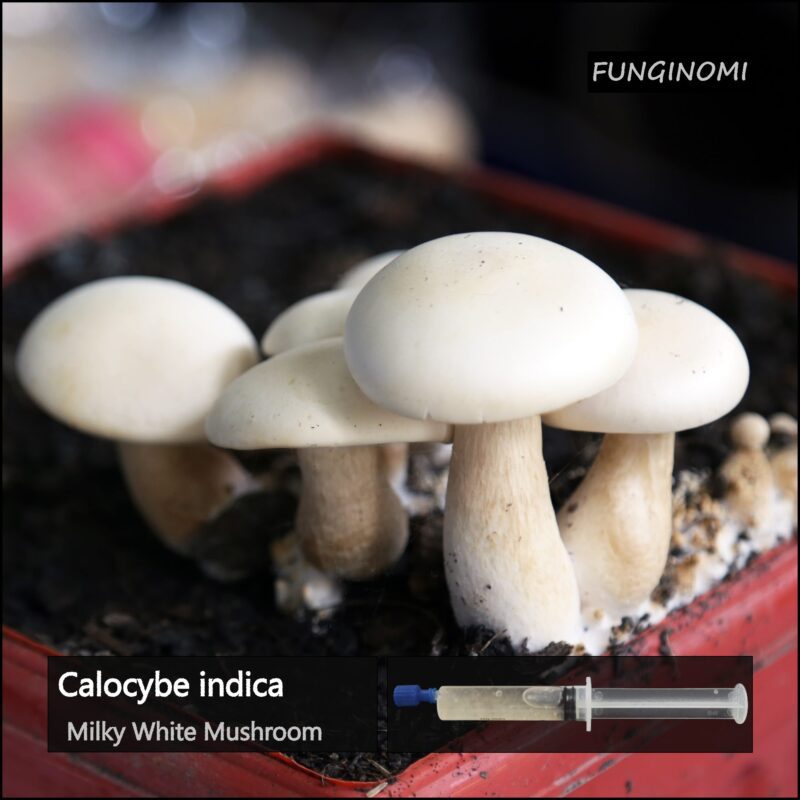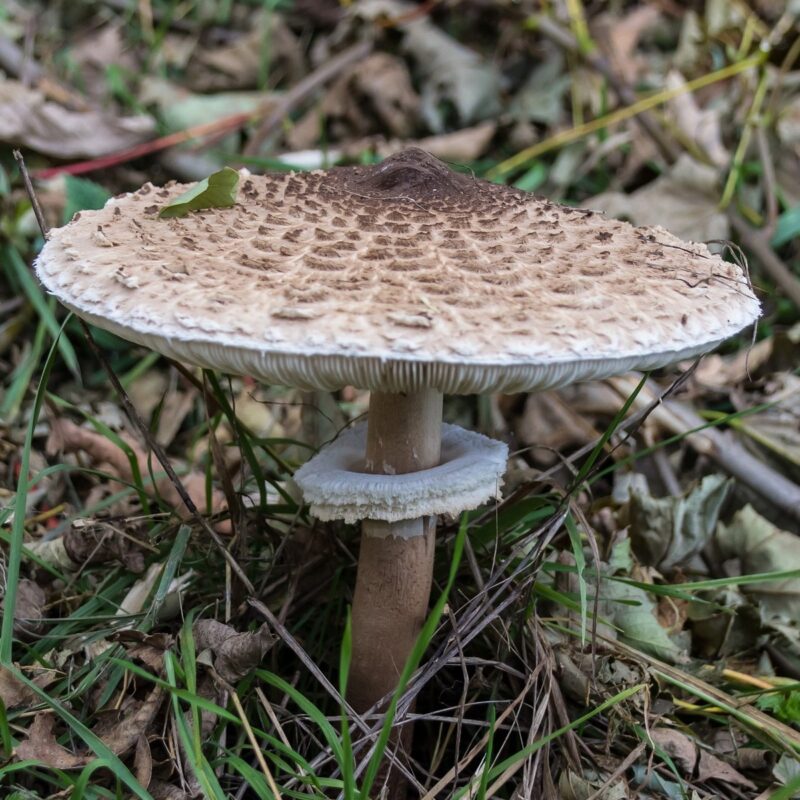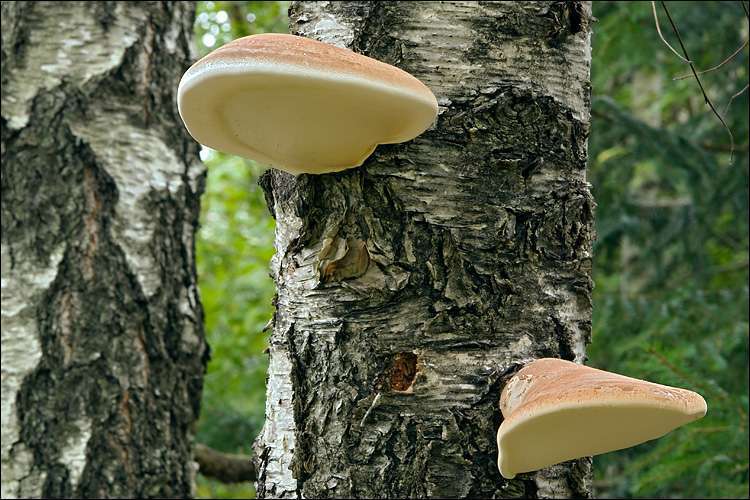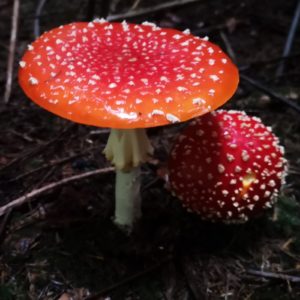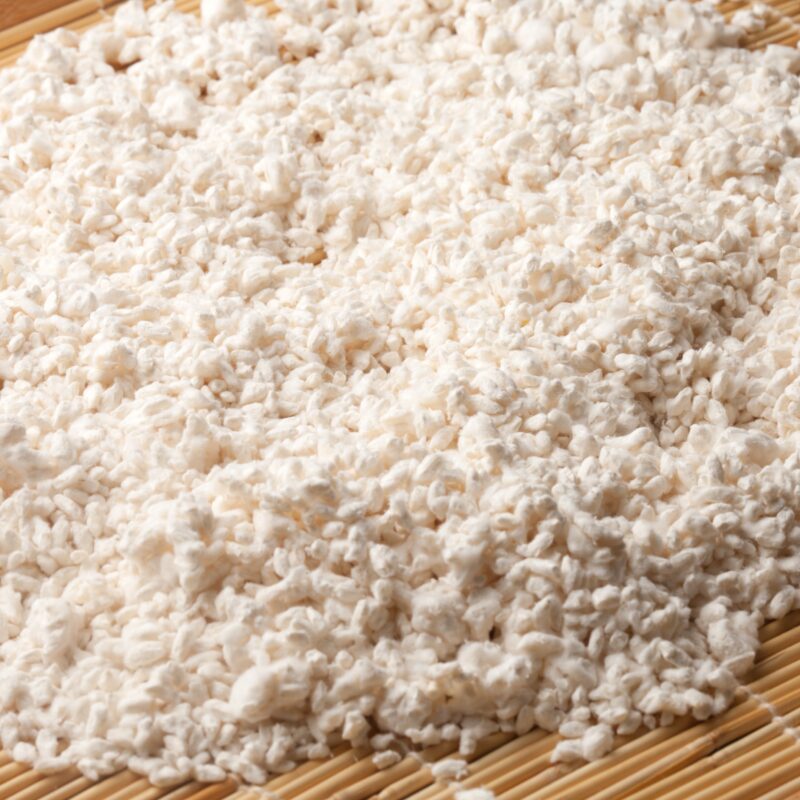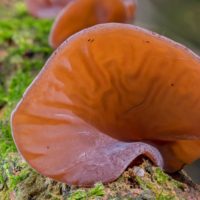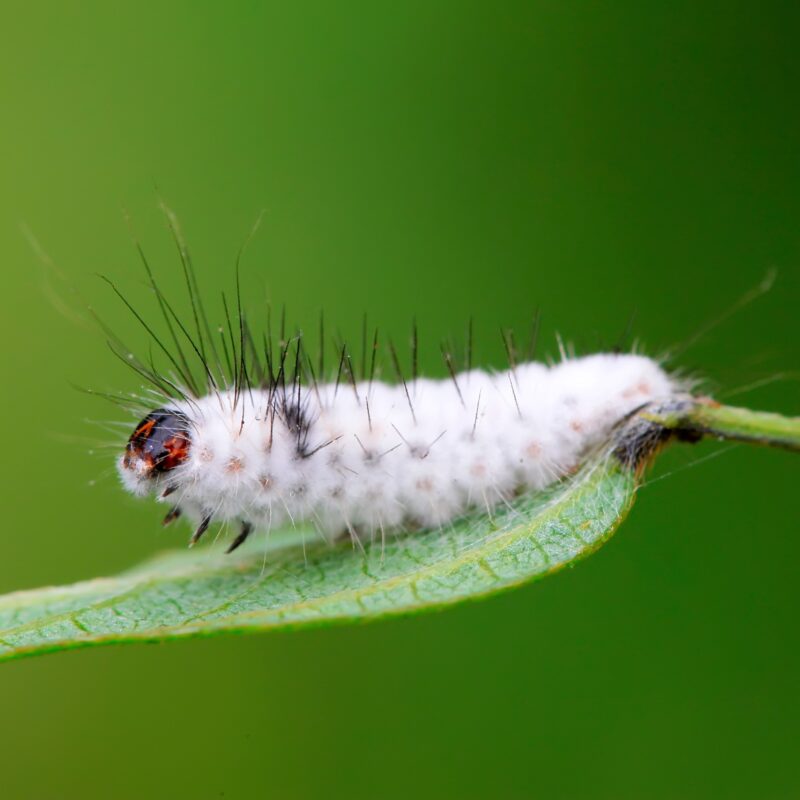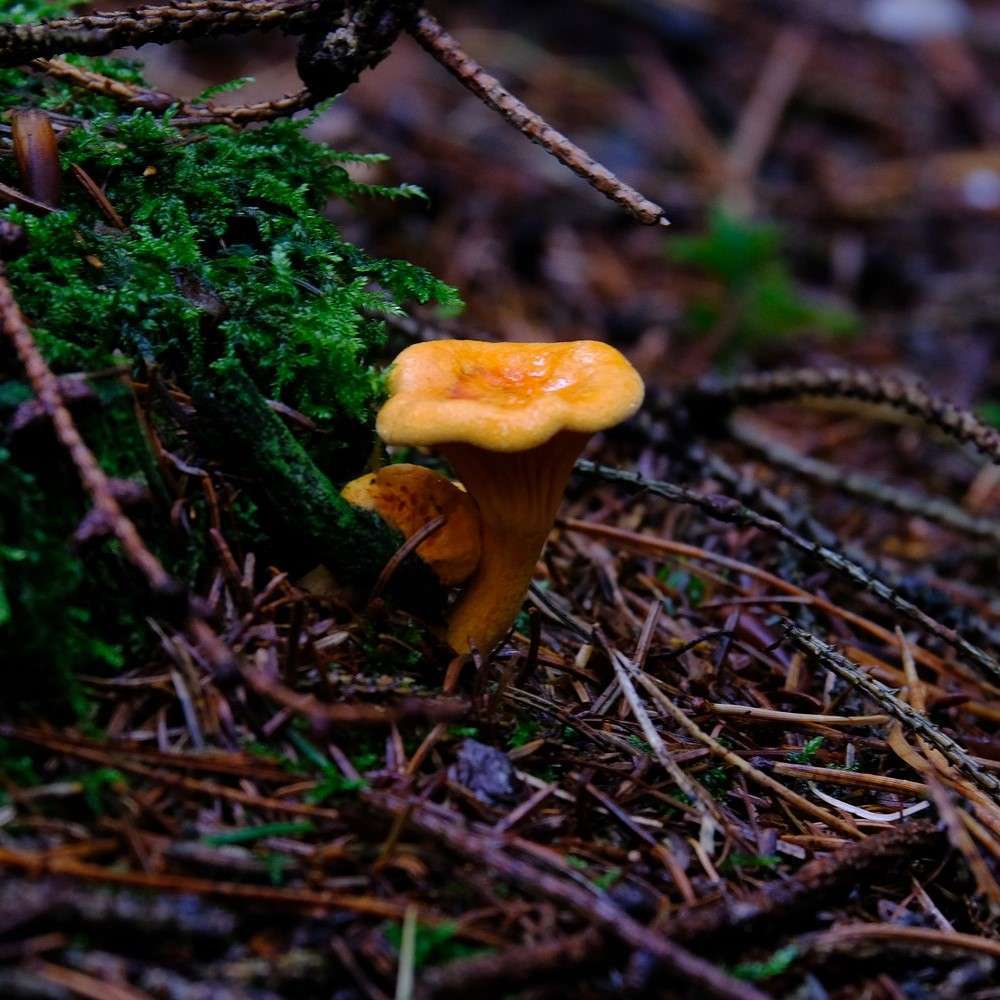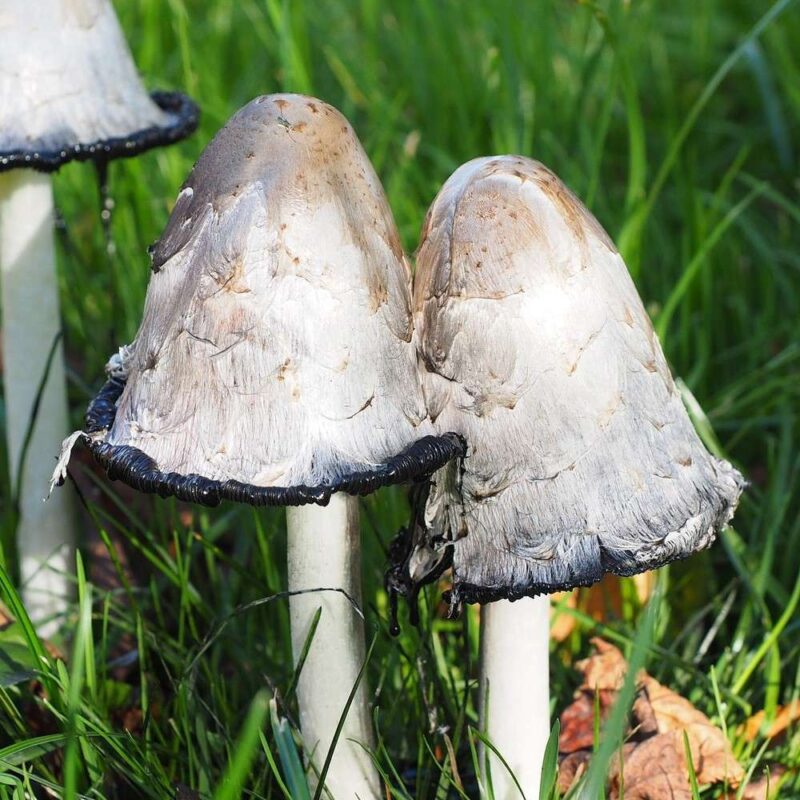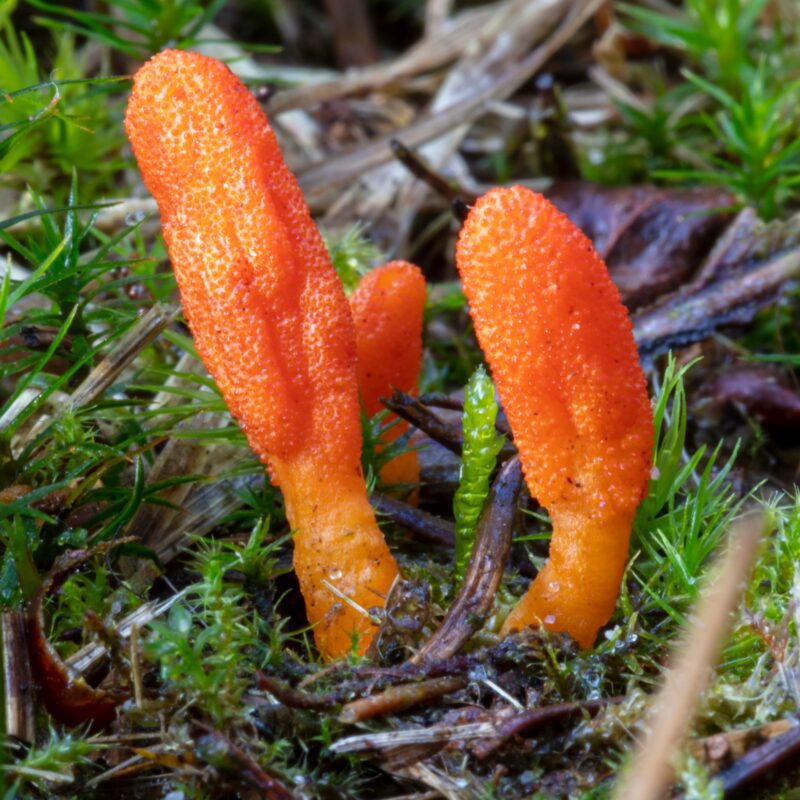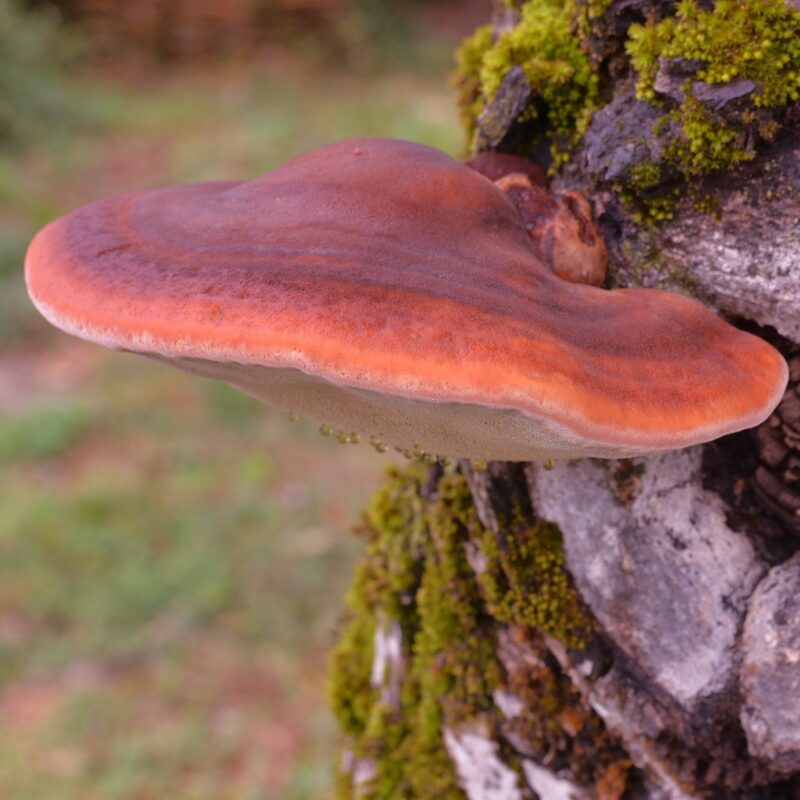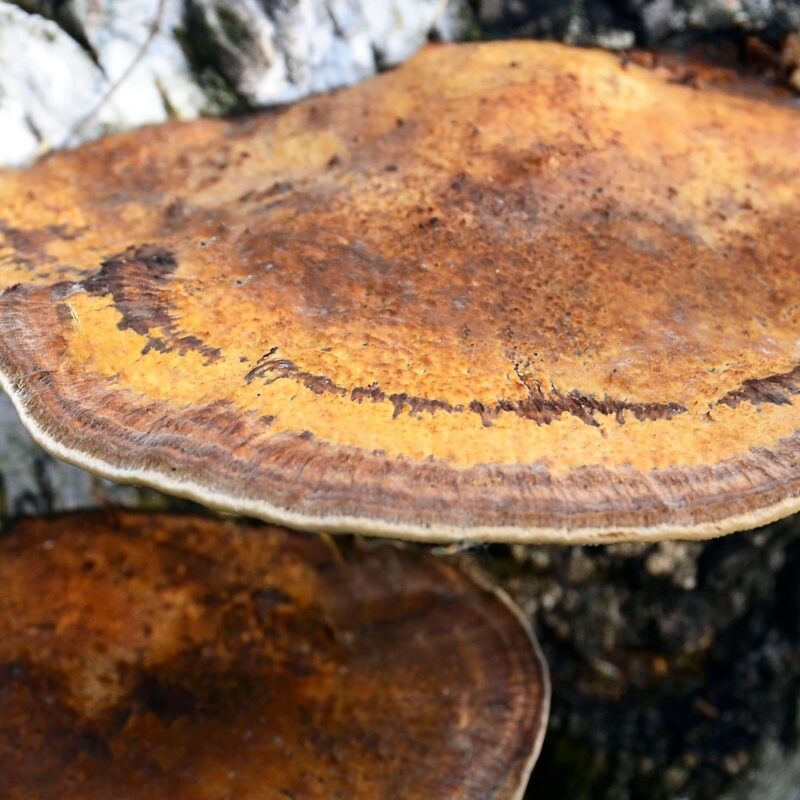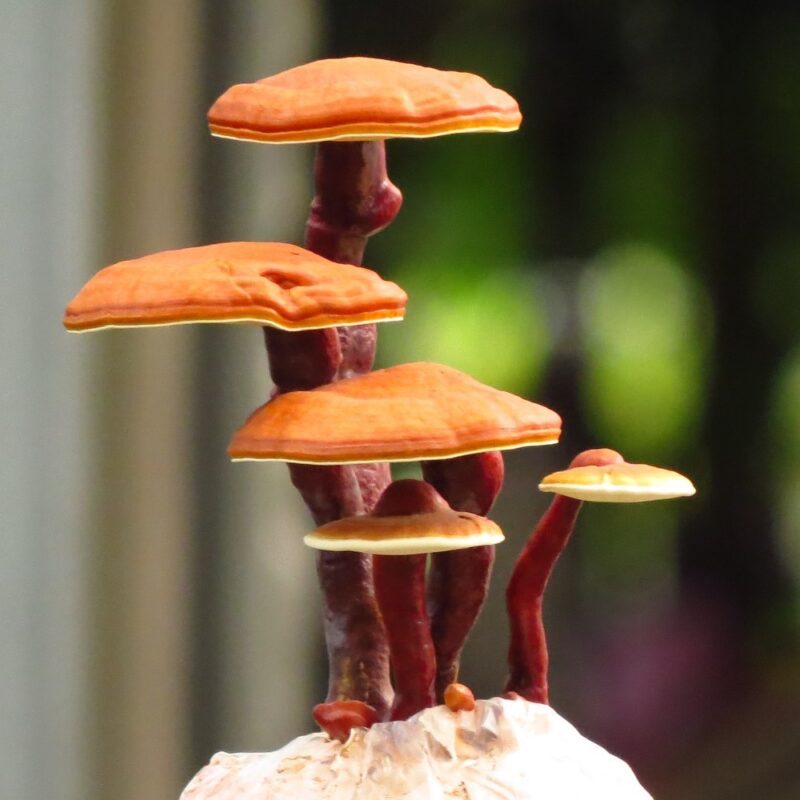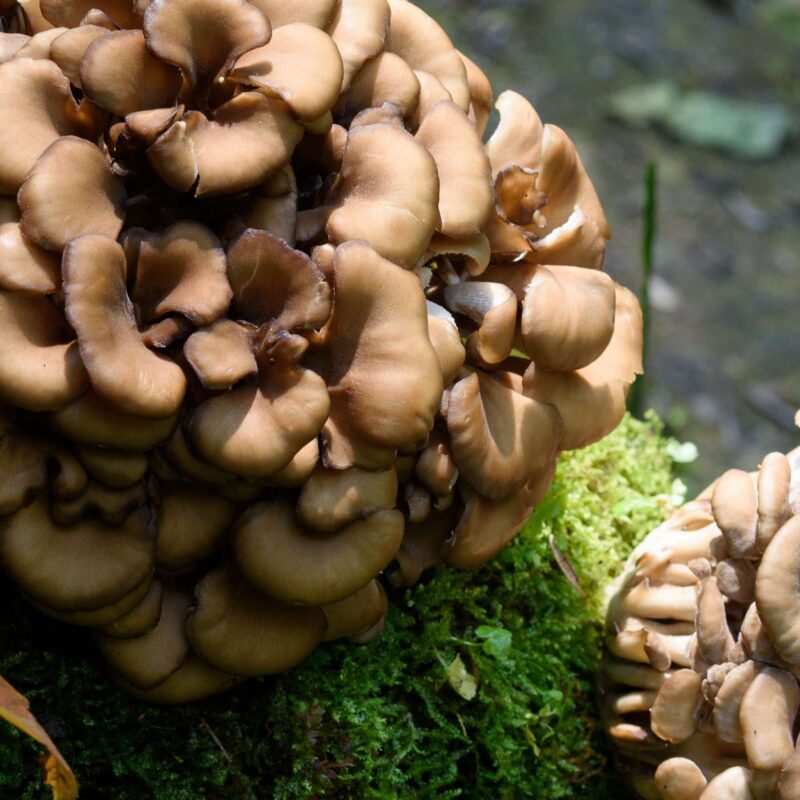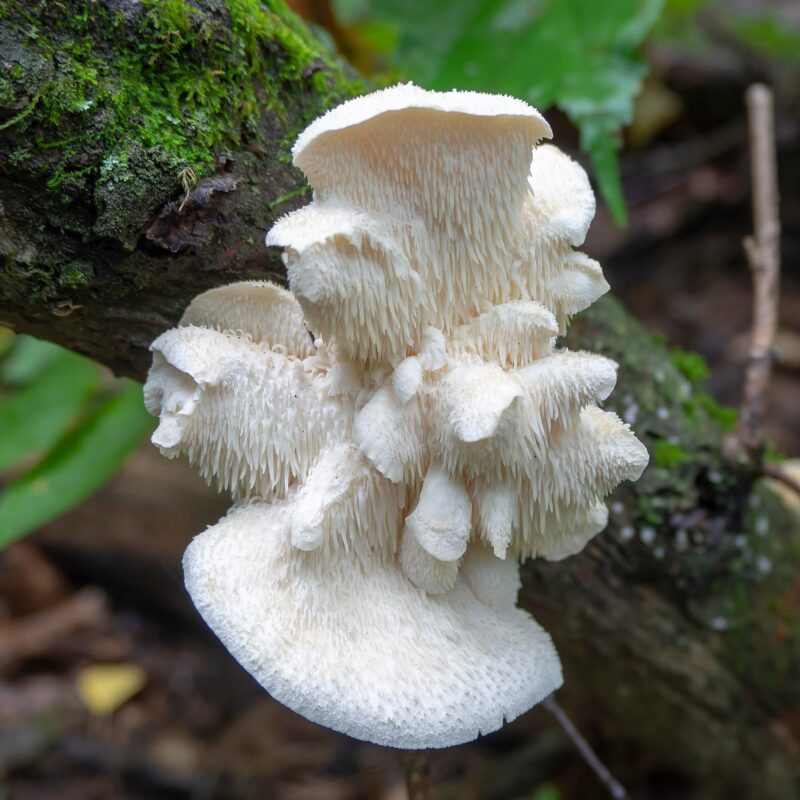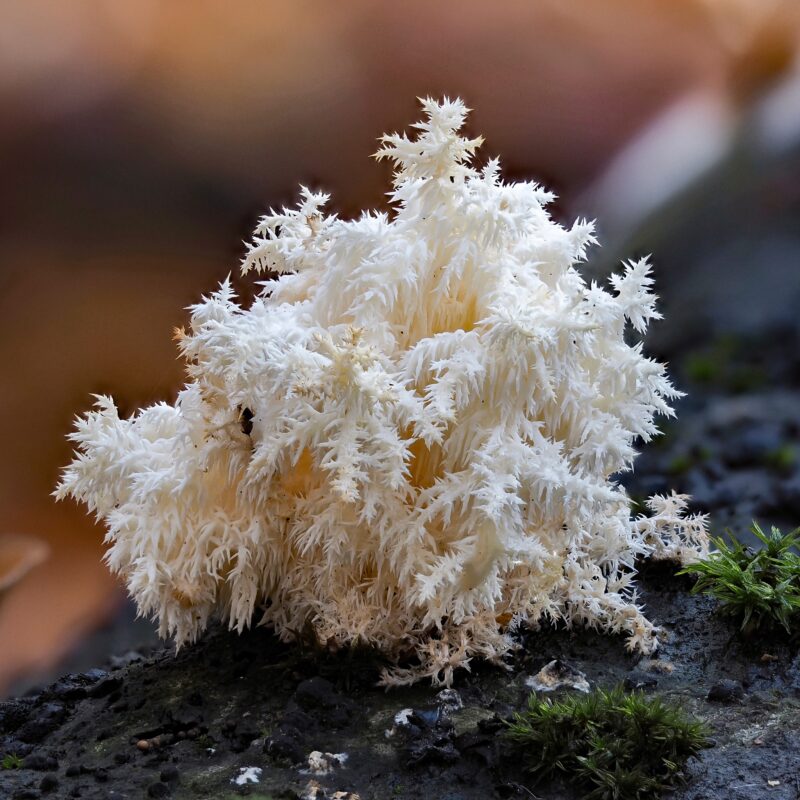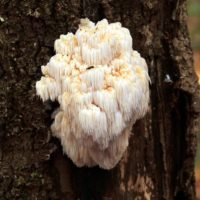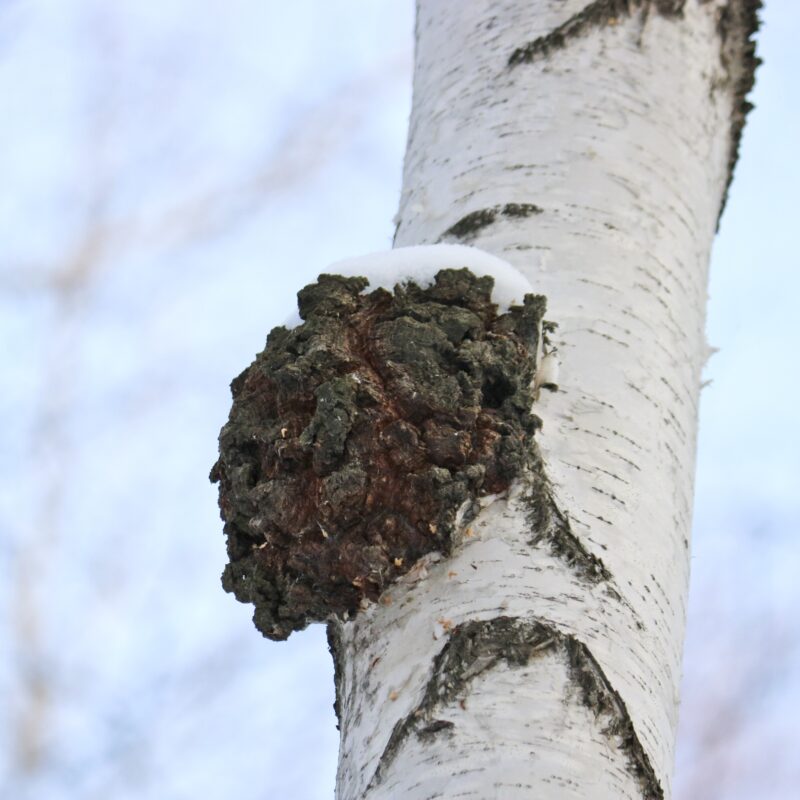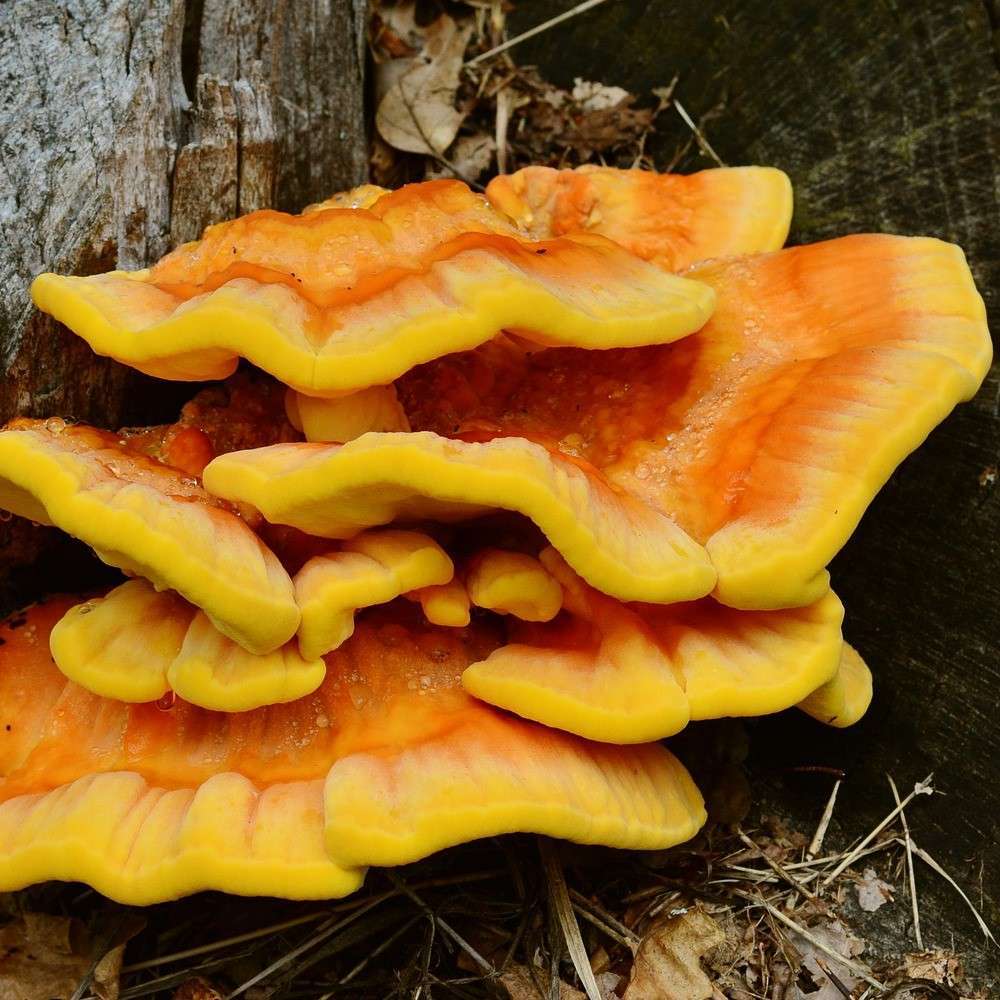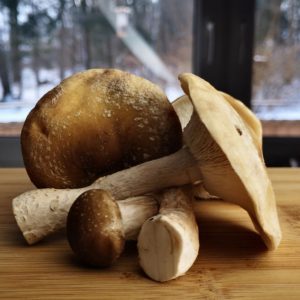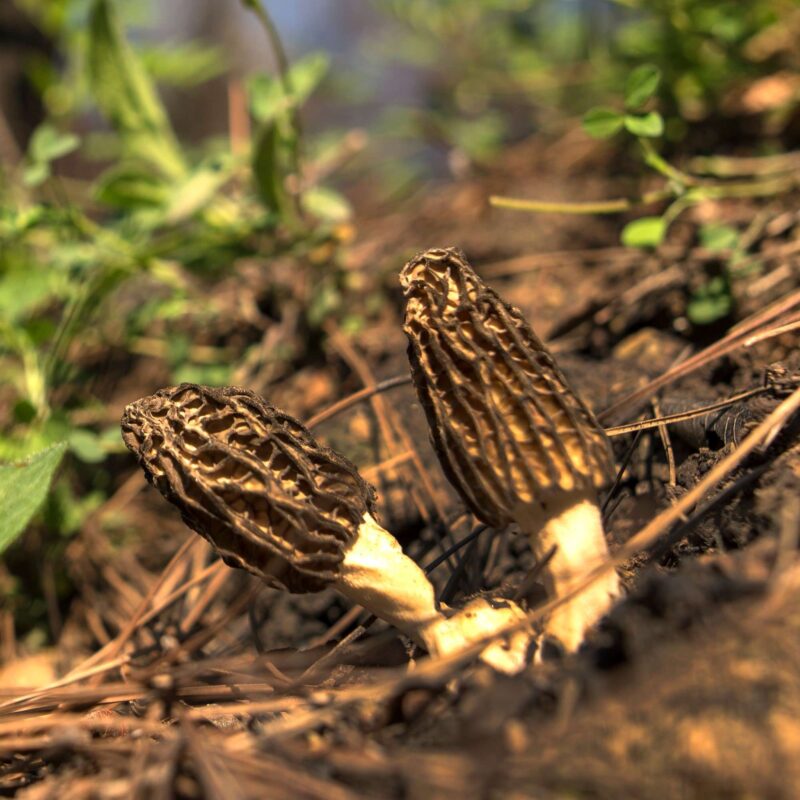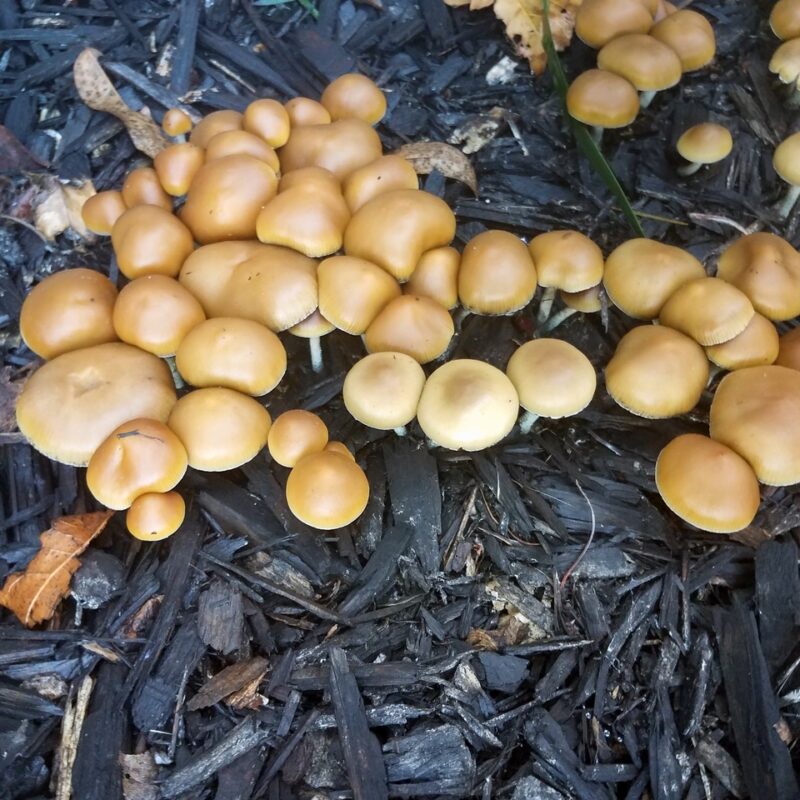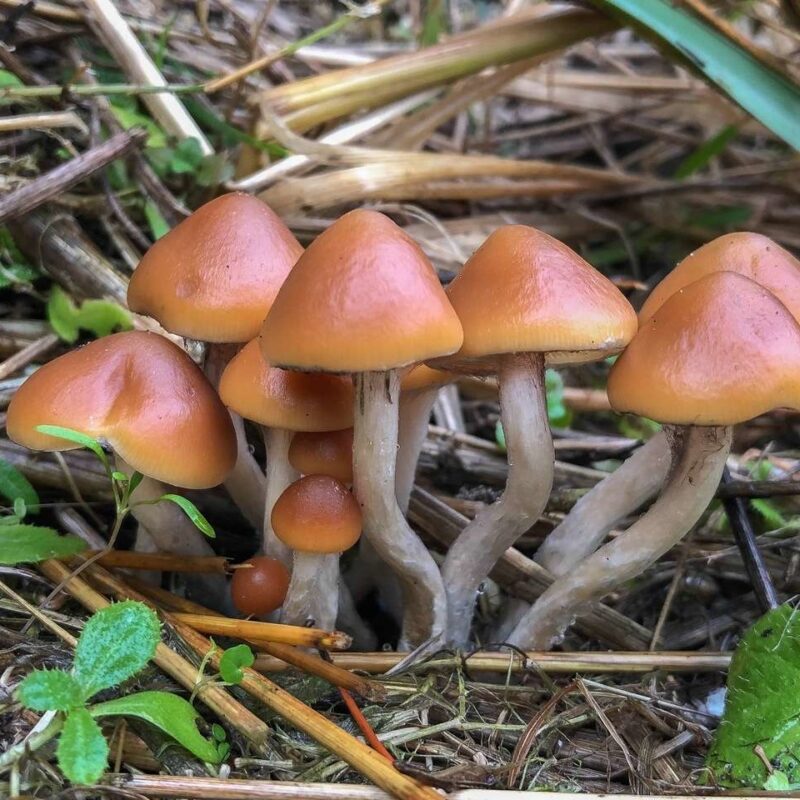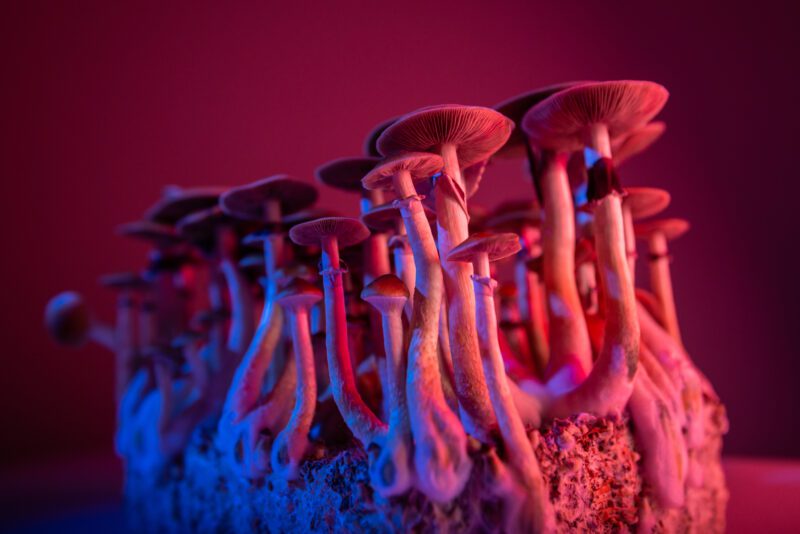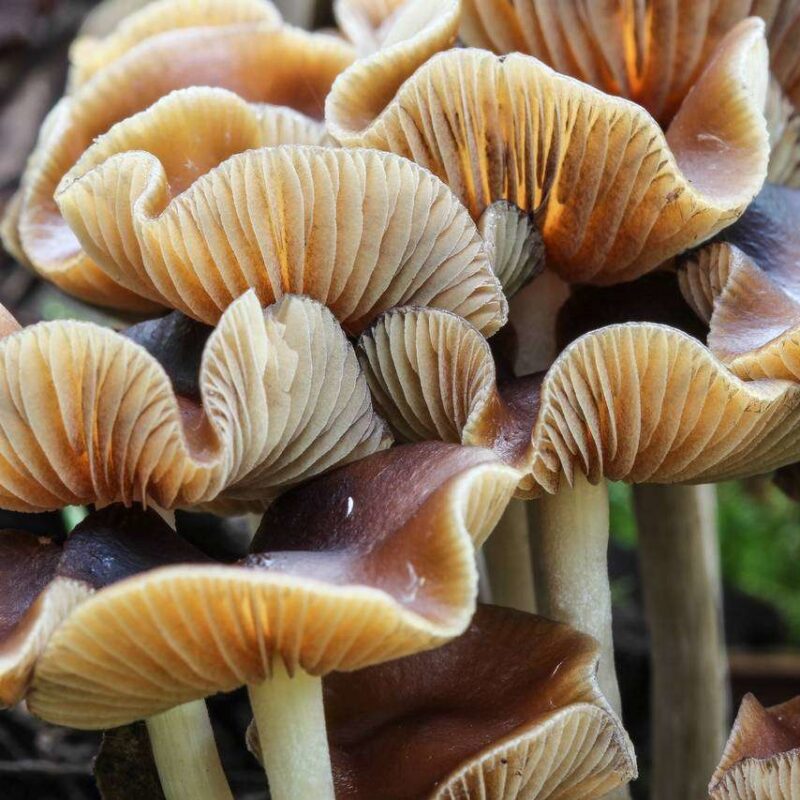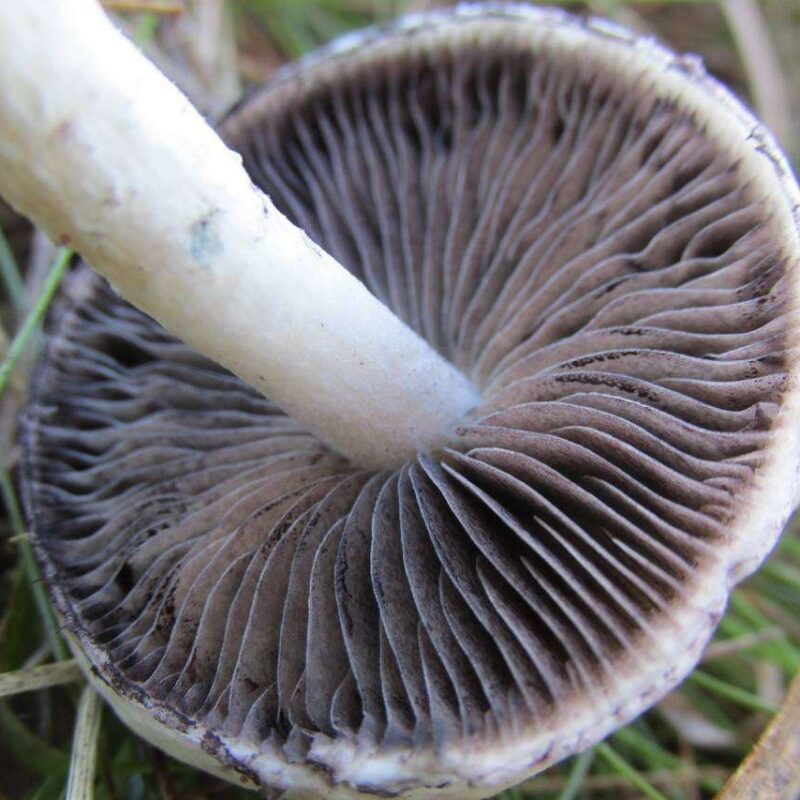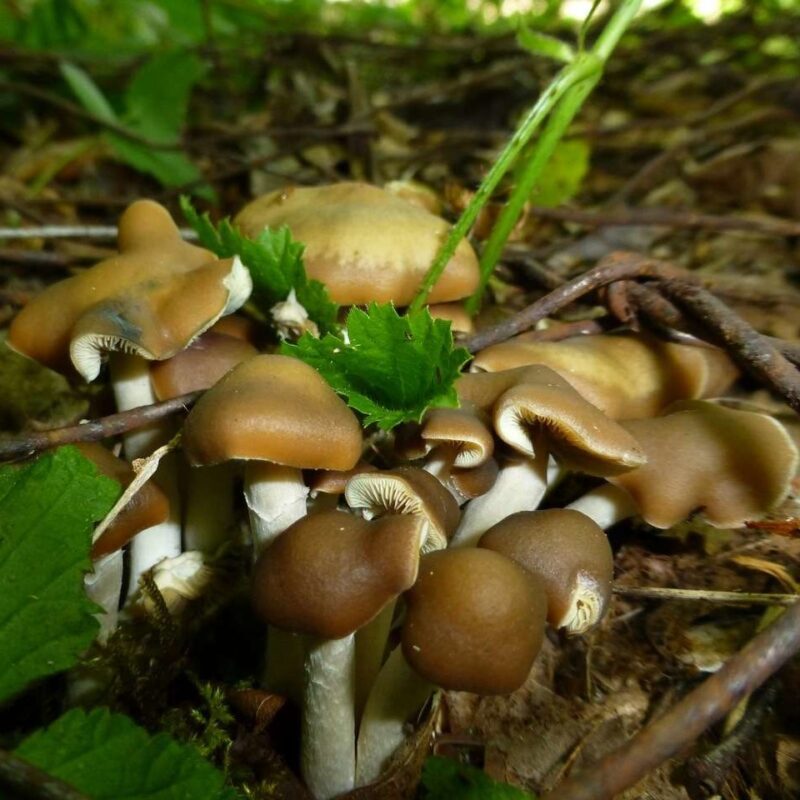Description
Properties
Fomitopsis betulina is a fungus from the family of dry rot relatives. It attacks birch trees and lives parasitically in them. After the tree dies, it switches to a saprophytic lifestyle.
Although it has long been known in folk medicine in Central Europe as a traditional remedy for stomach complaints, only a few cultivators have succeeded in cultivating it.
In arboriculture, Fomitopsis betulina is an indicator of the loss of a tree’s health…. The birch porling causes severe brown rot in birch trees. The wood of the infested tree becomes brittle and turns dark brown (cube fracture). The mycelium of the fungus is found between the fracture lines of the wood. The result is usually wind breakage at the level of the infestation.
The Fomitopsis betulina exclusively attacks birch trees. Usually, the fungus invades old, dying trees via break-off points of branches where the xylem has been exposed. In the process, it breaks down the cellulose of the tree, causing massive losses to the wood substance. Within three months, the tree can thus lose 50-70% of its mass in the infested areas. This is serious, as birch trees contain only about 20% mass of lignin.
The birch polypore is often attacked by mycetophagous pests, which are usually insects and mites. In the first six months, the fruiting body is particularly attacked by Tetratoma fungorum, while dead fungi are decomposed mainly by Cis bilamellatus; both species are beetles that feed primarily on fungi. While the latter spends its entire life cycle in the fruiting body, T. fungorum pupates in rotten wood or nearby soil before the imagines infest the fungus. Old fruiting bodies are often colonized by the birch porling cushion pustule fungus.
As a tea infusion og Fomitopsis betulina, it is very good for all kinds of stomach problems. In naturopathy, it is said to be effective against tumor diseases of various forms by reducing the side effects of chemotherapy. It has anti-inflammatory, antibiotic, and antiviral effects. It also helps against worm diseases and other intestinal parasites. It promotes hair growth and improves the complexion. “Ötzi” also had a birch polypore with him. While it was initially suspected that the mushrooms may have contained hallucinogens, this soon turned out to be false, as did their use as tinder. The man probably carried the mushrooms with him for their antibiotic effect.
Researched for its phytochemistry and pharmacological activity. Phytochemicals include phenolic acids, indole compounds, sterols, and triterpenes.
Agaric acid found in the fruit body of the fungus, is poisonous to the parasitic whipworm Trichuris trichura.
In earlier times, Fomitopsis betulina was mainly used as a medicine. The fruiting body cut into thin strips was used as a bandage for wound healing, among other things because of its anti-inflammatory ingredients. In Scandinavia, its flesh was used as a sheath for knives to protect them from rust.
More recently, the birch polyporehas been gaining interest again, as studies have confirmed its high antioxidant activity, as well as antibacterial and antiviral effects (especially on influenza strains). Also, antitumor properties have been noted, which are currently being further investigated.
1. Growing
Affiliate Partner
Growing Procedure
Unsterile on birch logs or sterile on a substrate containing birch wood. Expect an incubation period of several months. Fruiting succeeds at temperatures of 10-15°C, for primordia formation it needs high humidity and also some light.
As with all porcini, the strategy of allowing Fomitopsis betulina to form only a single fruiting body leads to the best result.
Growing
Agar Culture Media: MEA
Cropping Cycle: –
Containers for fruiting: Decomposting birch
Biological efficiencies: 35%
Substrates: Birch
PH: 3.5-4.0
This is a parasitic mushroom, grows outside on birch (dowls recommended), also indoor fruiting bags with live birch are possible
Growing Characteristics
wood decayed by the Fomitopsis betulina and cultures of its mycelium often smell clearly of green apples, brown rot trigger
S
|
P
|
F
|
|
|---|---|---|---|
Temp °C |
21-27 | 10-16 | 10-18 |
Relative Humidity % |
95-100 | 95-100 | 60-80 |
Duration d |
14 | ||
CO2 ppm |
>10000 | <1000 | <1000 |
FAE per h |
0-1 | 4-7 | 4-7 |
Light lux |
Natural Habitat
Birch polypore are mesophilic, i.e. they prefer a temperature of 25 °C. Above a temperature of 30 °C their growth stops, the minimum temperature for growth is about 7-9 °C. Consequently, the distribution of the fungus corresponds to this: it is found everywhere in North America and Eurasia, where these temperatures prevail during the formation of its fruiting body and a stand of birch trees exists.
only on dead birch wood, year-round, in spring mostly no or only little fruiting body formation, main growing season in autumn
2. Identification
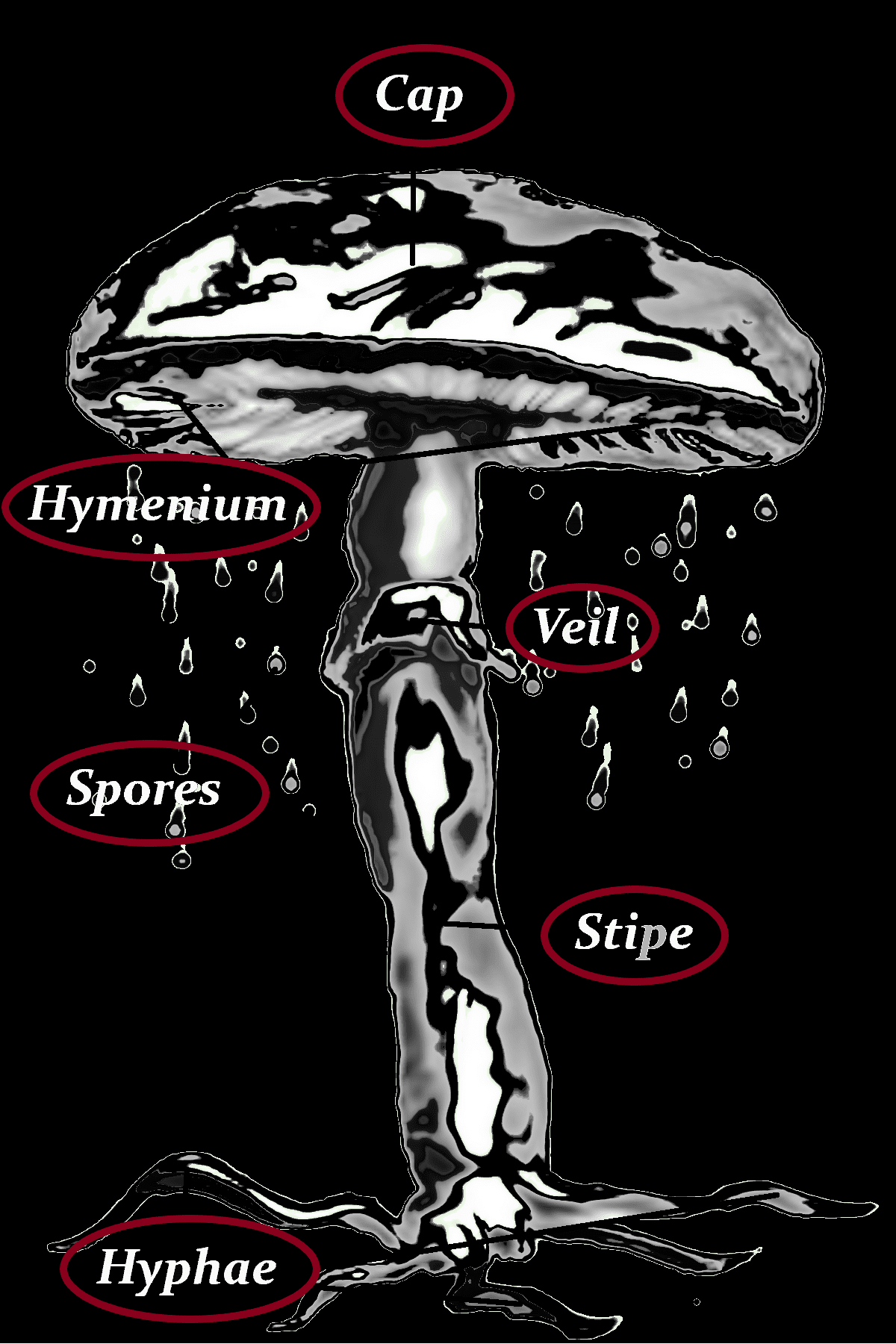
Cap
-3-15 (30) cm Ø
-smooth, bulbous-spherical, later pillow-shaped
-upward hump often in center
-whitish-cream colored, later brownish, speckled
-rubbery texture, becoming corky with age
Stipe
none, the attachment point on the trunk is often narrowed like a stem
Hymenium
-1-8 (10) mm
-every mm 2-4 pores
-whitish to light yellow, old yellowish-gray to ocher-brown
-when young the pores can be removed and are hardly visible on the underside, old colored green by algae
Hyphae
-the hyphae develop radially
-mostly dimitic
-clamped generative hyphae, 1.5–3.5 µm in diameter, are branched and hyaline
-skeletal hyphae with the diameter of 3– 4 µm, are less branched and have thicker walls
Spores
-white
-5-7 x 1,5-2 µm
-cylindrical to ellipsoidal
Danger of confusion
Fomitiporia robusta, Ganoderma adspersum, Ganoderma carnosum, Aurantiporus fissilis, Oligoporus guttulatus, Postia tephroleuca, Postia stiptica
Veil
–
3. Consuming
Gourmet
The birch polypore is edible when young, but inedible due to its bitterness. Tea, spore powder capsule, spore oil soft gel capsule, and coffee with Fomitopsis betulin extract.
Smell
sour
Taste
-sour, bitter
Flesh
-soft when young, white,
-with age tough and cork-like, hard, dry
Nutritional content
.
4. Data
other names
| Chinesisch (traditionell) | 樺擬層孔菌 |
| Chinesisch (traditionell) | 白樺菌菇 |
| Chinesisch (vereinfacht) | 桦剥管孔菌 |
| Chinesisch (vereinfacht) | 桦拟层孔菌 |
| Chinesisch (vereinfacht) | 白桦菌菇 |
| Deutsch | Birkenporling |
| Dänisch |
Birkeporesvamp
|
| Englisch | birch polypore |
| Estnisch | kasekäsn |
| Estnisch | kasekäsnak |
| Finnisch | pökkelökääpä |
| Französisch |
Polypore du bouleau
|
| Japanisch | カンバタケ |
| Katalanisch |
Bolet d’esca de bedoll
|
| Litauisch |
Beržinis pintenis
|
| Niederländisch | Berkenzwam |
| Norwegisch | knivkjuke |
| Polnisch |
Białoporek brzozowy
|
| Russisch |
Трутовик берёзовый
|
| Schwedisch | Björkticka |
| Spanisch |
Yesquero del abedul
|
| Tschechisch |
březovník obecný
|
| Ungarisch | Nyírfa-tapló |
| Wissenschaftl. Name |
Fomitopsis betulina
|
| Wissenschaftl. Name |
Piptoporus betulinus
|
| Wissenschaftl. Name |
Polyporus betulinus
|
other names
Boletus betulinus, Boletus betulinus, Piptoporus betulinus, Birkenporling, Birkenzungenporling, Birkenschwamm, Birken-Hautporling, Ötzipilz
| Kingdom | Fungi |
|---|
Division Basidiomycota
Class Agaricomycetes
Order Polyporales
Family Fomitopsidaceae
Genus Fomitopsis
Ecology parasitic



